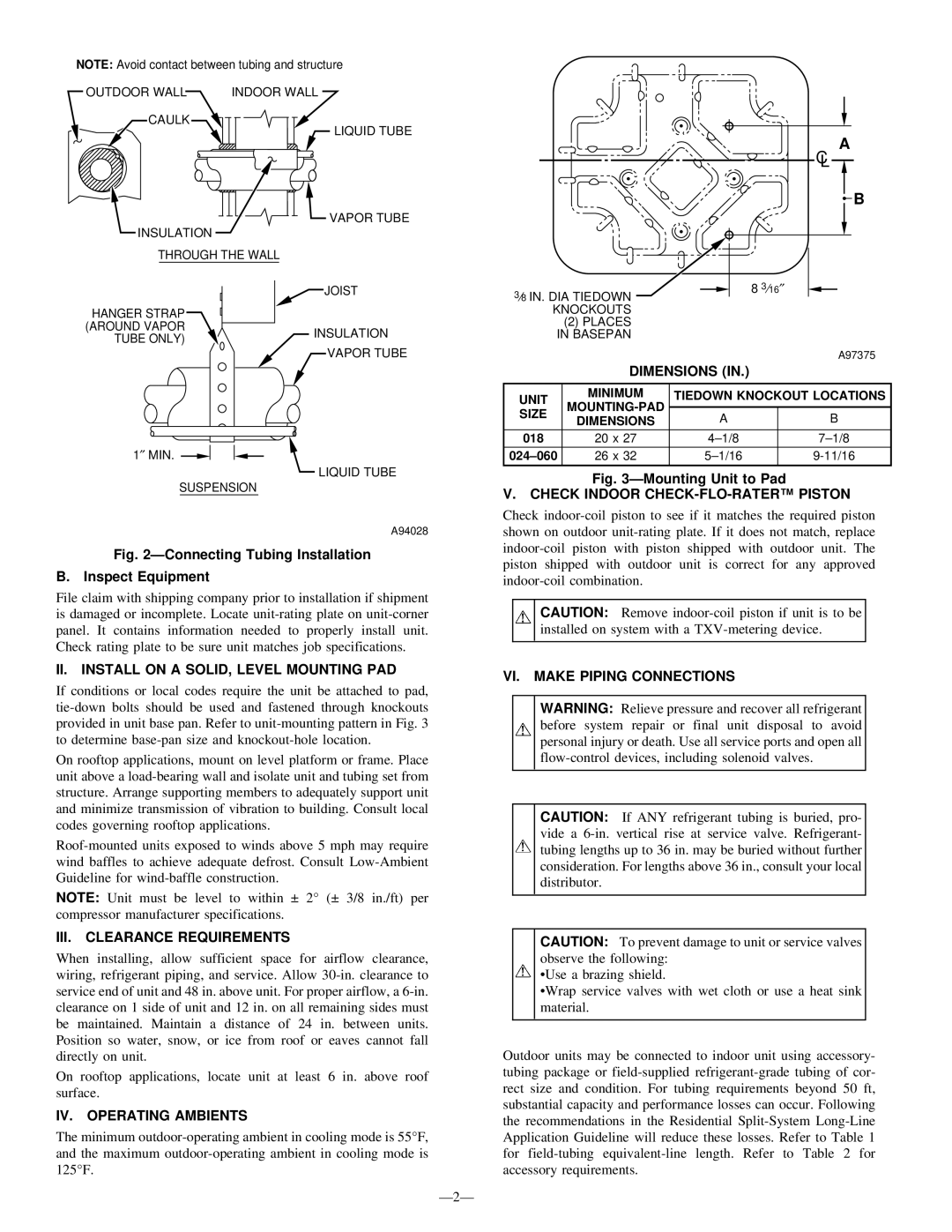597C specifications
The Bryant 597C is a remarkable two-stage air conditioning and heating system designed to deliver exceptional comfort and energy efficiency for residential spaces. As part of Bryant's Evolution series, the 597C combines advanced technology with reliable performance, making it a top choice for homeowners seeking a versatile HVAC solution.One of the standout features of the Bryant 597C is its two-stage compressor, which allows the system to operate at both high and low capacities depending on the indoor temperature demands. This capability not only enhances comfort by reducing temperature fluctuations but also improves energy efficiency. The system's modulating fan motor further optimizes airflow, ensuring consistent distribution of conditioned air throughout the home.
The Bryant 597C is equipped with advanced technology, including the Preferred Control System, which allows homeowners to connect the unit to smart thermostats for precise temperature control. This integration not only simplifies operation but also enables users to monitor energy consumption and adjust settings remotely through mobile apps. Moreover, the unit supports variable-speed operation, which enhances overall efficiency and reduces noise levels, ensuring a quieter indoor environment.
In terms of design, the Bryant 597C features a compact and durable cabinet, constructed with galvanized steel and a baked-on powder paint finish that protects against the elements. This thoughtful design not only enhances the unit's longevity but also minimizes maintenance needs. The unit is offered in a range of sizes, making it adaptable to different home layouts and sizes.
Another key characteristic of the Bryant 597C is its efficiency ratings. With a SEER (Seasonal Energy Efficiency Ratio) rating of up to 20 and an HSPF (Heating Season Performance Factor) rating of up to 9.5, this system is highly efficient compared to standard models. This energy-efficient design helps homeowners reduce their utility bills while minimizing their carbon footprint.
In summary, the Bryant 597C is a robust, efficient, and technologically advanced HVAC solution. Its two-stage cooling and heating capabilities, combined with smart technology integration and superior efficiency ratings, make it an outstanding choice for homeowners looking to enhance their indoor comfort while being environmentally conscious. Whether for new construction or retrofitting, the Bryant 597C stands out as a leader in the HVAC market.

